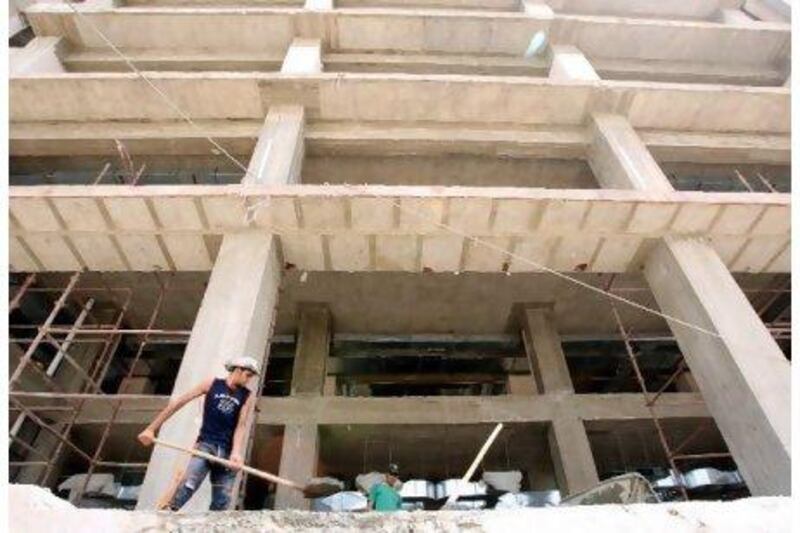Internal wrangles in Iraq continue to blunt efforts to build millions of badly needed homes in the war-torn country.
"There is a lot of confusion in Iraq on how to deal with [the housing issue]," said Samir Daoud, the founder of Diar Consult architects, which has offices in Abu Dhabi and Dubai. "Developers are really interested but they've been waiting for months, if not years."
The UN estimates more than 2 million homes are needed in Iraq by 2016, although some analysts place the number closer to 3 million.
In recent years there have been several announcements about multibillion-dollar deals with foreign companies for housing projects but little progress.
In September, Iraq's National Investment Commission announced that two UAE developers, Al Maabar and Bloom Properties, had closed deals on projects worth US$66 billion (Dh242.4bn). But three months after the announcement, Al Maabar still has not signed contracts for the deal, a company spokesman said. And a project in Iraqi Kurdistan proposed by Damac Properties, based in Dubai, collapsed earlier this year.
More than $50bn in investments in Iraqi housing from the UAE have yet to come to fruition, according to a report from Dunia Frontier Consultants (DFC), which tracks the market.
The biggest issue has been the lack of a central government, said Kyle Stelma, the emerging markets director at DFC. Nouri al Maliki, the Iraqi prime minister, has promised to form a cabinet this month after an eight-month delay.
"The general consensus is that if they finally seat a coalition government, 2011 will be the year of foreign investment in Iraq," Mr Stelma said. This year the government approved a law allowing foreign investors to own property, he said.
"The government is fully supportive of these things and it's a big, very real market," said Mr Stelma, who described his outlook for the country as "cautiously optimistic".
Security issues and corruption are also conspiring to frustrate housing initiatives, analysts say. Several regions do not have adequate roads, electricity or water infrastructure to support new developments.
"The next year will see a lot of improvement in these areas," said Dhia al Shakarchi, the vice chairman of the Iraqi Business Council in Abu Dhabi. "They are going on the right track."
Recruiting foreign investors will be a top priority, government officials say. A 300 billion Iraqi dinar (Dh945.7 million) fund created in 2005 by the Iraqi government to encourage house purchases is already two-thirds depleted with little hope of it raising outside capital, Khairi F Awn, the director of the fund, said last week at a conference in Jordan on Iraq's housing issues.
"We are far away from achieving our goals," Mr Awn told Bloomberg. "A crisis of this size can't be resolved by any government, even using all its resources."
Mr Daoud also attended the conference in Jordan. Afterwards, he said little had been achieved. "There is no programme, no plan of action" as to how to address the situation, he said.
Saber ala Issawi, the mayor of Baghdad, announced recently that the government would soon float a tender to foreign companies to build 82,000 homes in the city, part of a plan to raise more than $100bn for housing. Some 80 per cent of the money will need to come from private sources, he told Reuters.
Baghdad's government has targeted $1.5bn for housing and infrastructure improvements next year. But the funds have not yet been approved, Mr al Issawi said.






